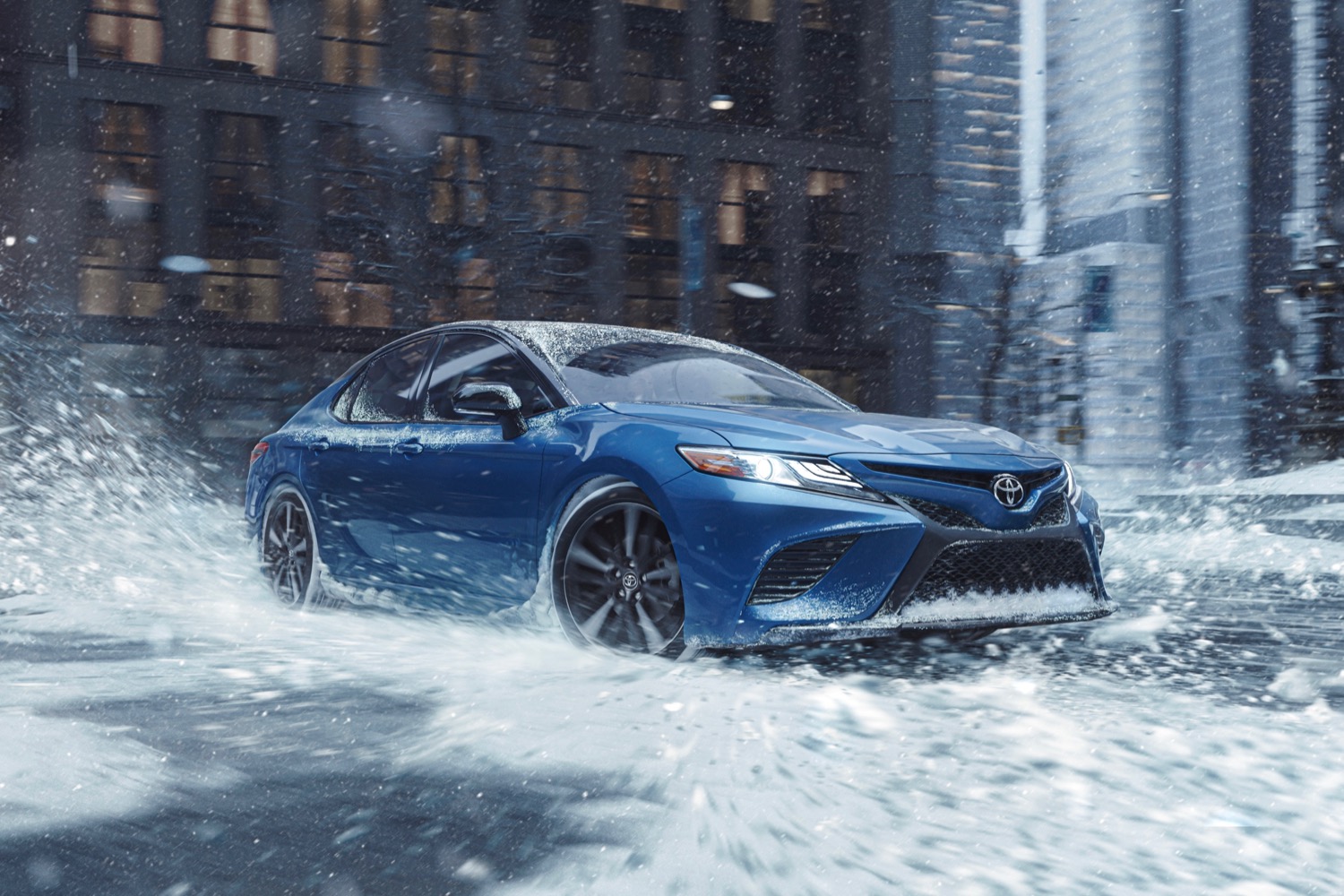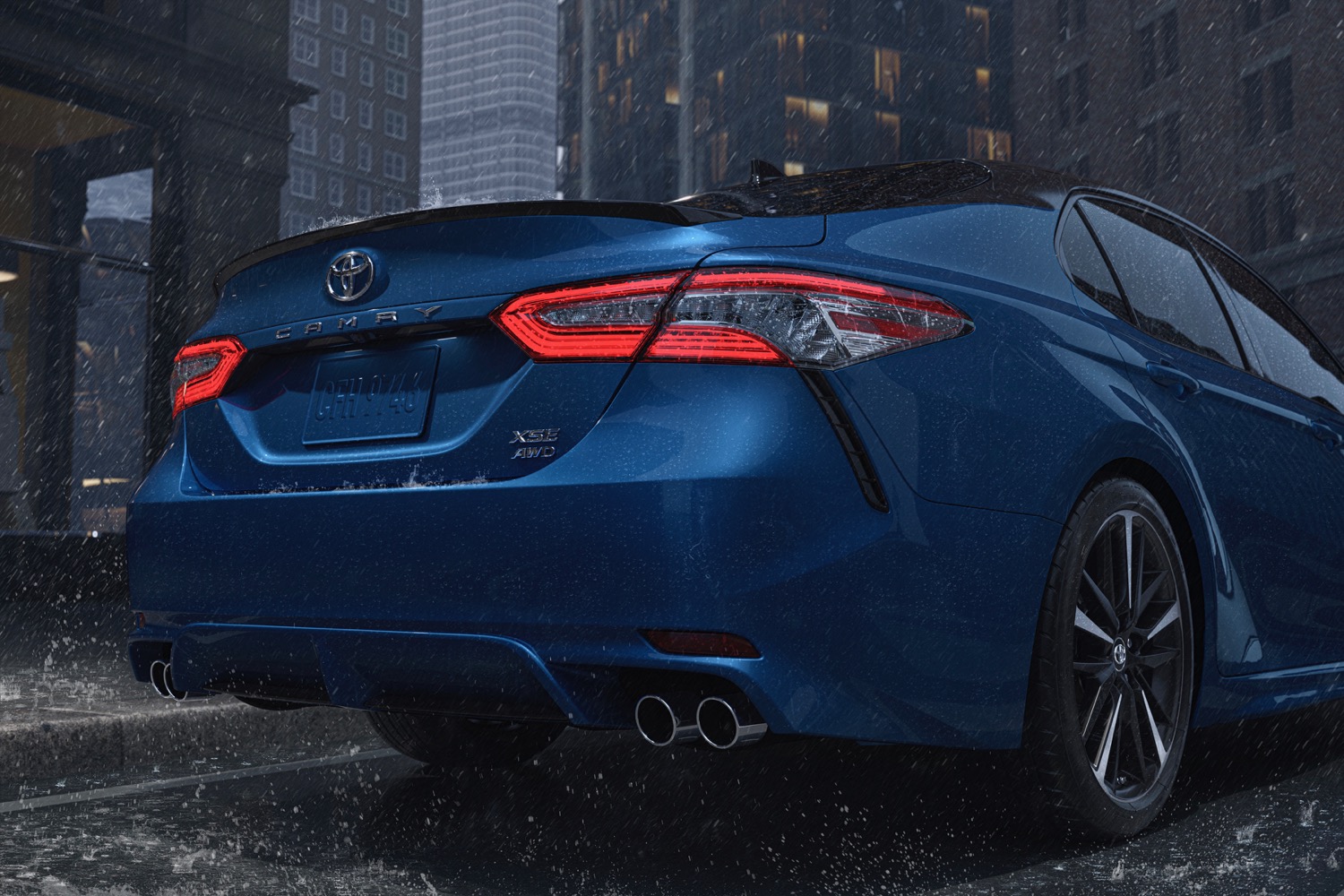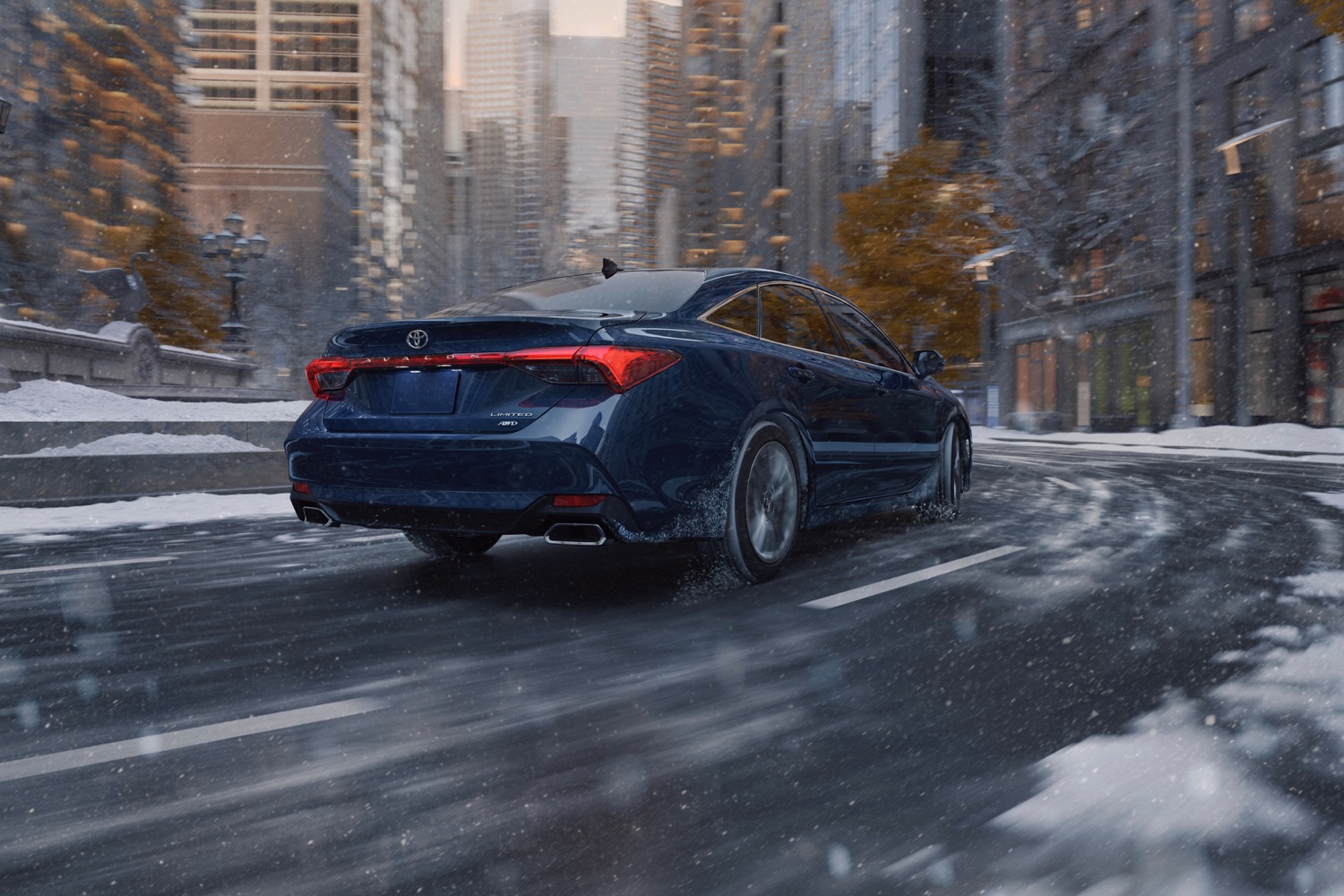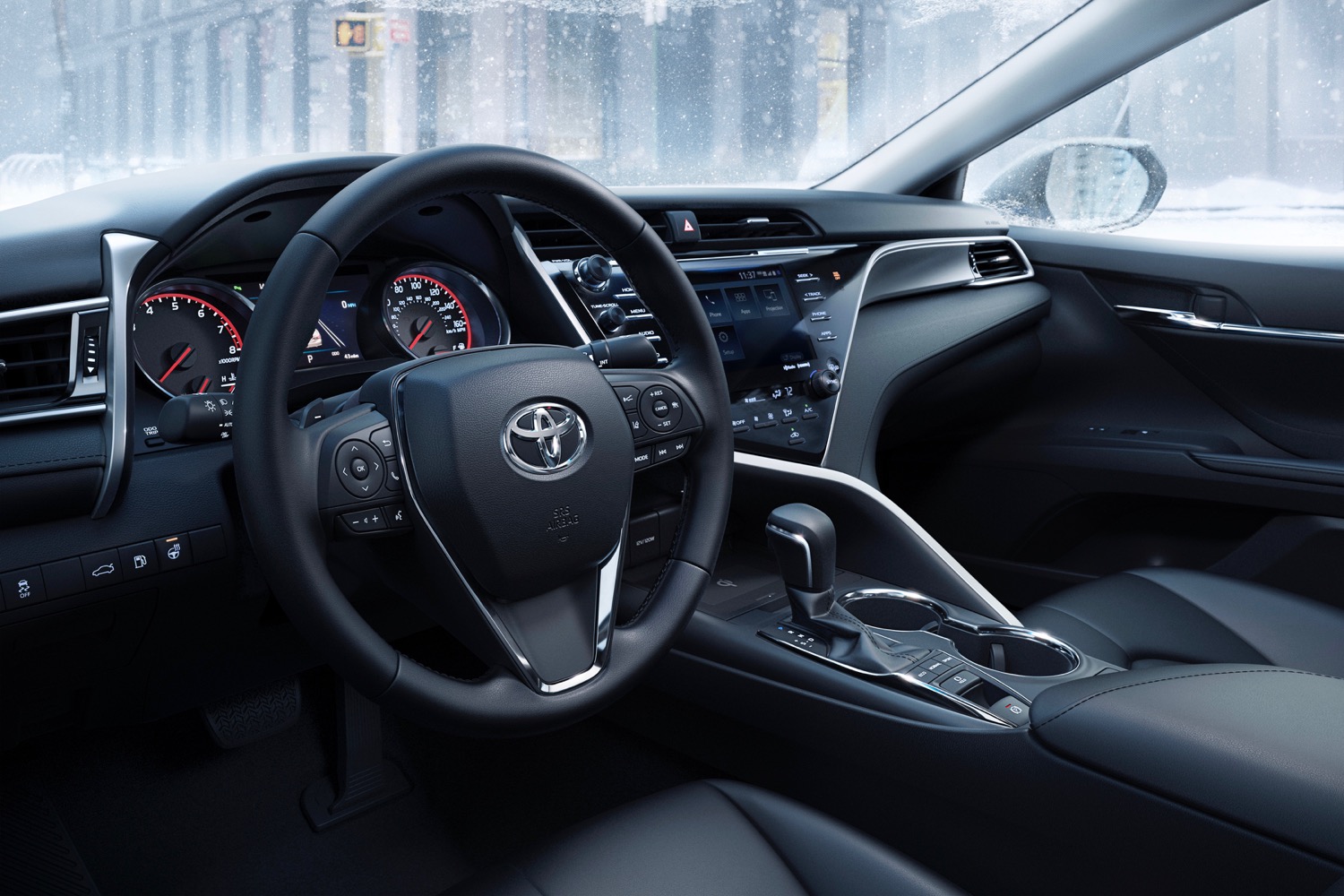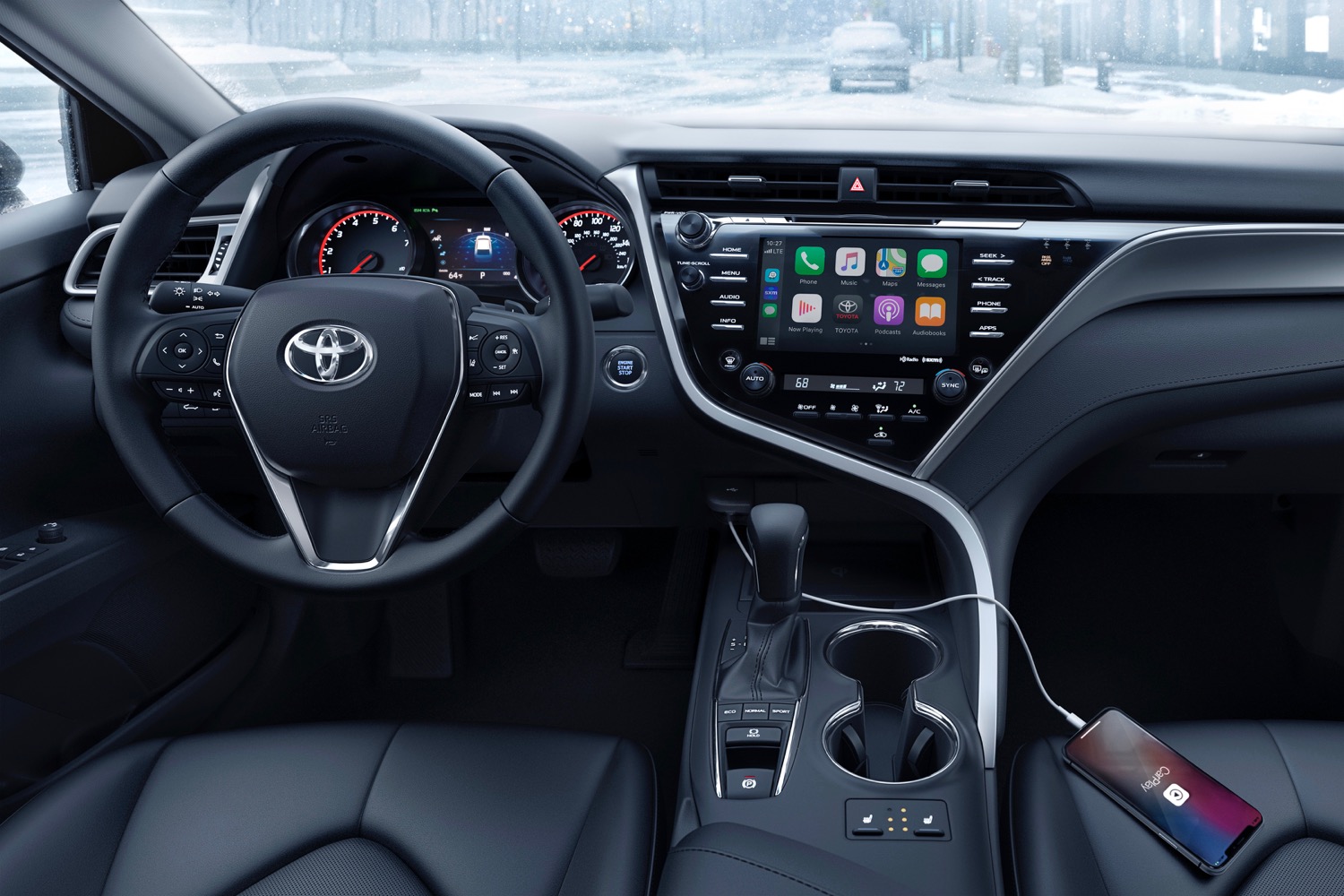The Toyota Camry is incredibly popular with carbuyers (as well as Uber drivers), but for many shoppers, the ubiquitous midsize sedan is missing one thing — all-wheel drive. That’s about to change. Toyota is adding all-wheel drive to the Camry, as well as the larger Avalon sedan. The all-wheel drive Camry goes on sale in spring 2020 as a 2020 model, with the Avalon following in fall 2020 as a 2021 model.
Why is all-wheel drive such a big deal? It will give the Camry and Avalon, which are currently available only with front-wheel drive, more traction on slippery surfaces. That’s a big selling point in parts of country that experience severe winters, and one of the main reasons why buyers are abandoning sedans in favor of crossovers. Customers have been clamoring for all-wheel drive, Toyota claims.
Toyota previously offered an all-wheel drive Camry from 1988 to 1991. Since that model was dropped, customers and dealers have sent a stream of letters, emails, and online comments asking for the return of all-wheel drive, according to Toyota. The automaker likely wants to keep those customers from buying a Subaru Legacy or Nissan Altima instead. The Avalon has never been offered with all-wheel drive before.
Adding all-wheel drive to the Camry and Avalon was also relatively easy, according to Toyota. Both sedans are based on the Toyota New Global Architecture (TNGA) platform, which is also used by the RAV4 crossover. So while the Camry and Avalon weren’t originally designed for all-wheel drive, engineers were able to adapt components from the RAV4, including the engine, transmission, transfer case, and rear differential. The sedans also use the same multilink suspension configuration as the RAV4, but with model-specific tuning. Toyota also used a modified version of the propeller shaft from the Highlander crossover.
Engineers made room for the all-wheel drive components by modifying the floor structures of the Camry and Avalon, fitting electronic parking brakes, and changing the shapes of the fuel tanks. Despite the addition of a rear differential, Toyota doesn’t expect much of an impact on rear-seat room or trunk space. The all-wheel drive Camry weighs 165 pounds more than a front-wheel drive model, while the Avalon weighs about the same with all-wheel drive or front-wheel drive, according to Toyota.
The all-wheel drive system is designed to disengage the rear axle when extra traction isn’t needed, in order to boost gas mileage (specific figures aren’t available yet). But it can also send up to 50 percent of power to the rear wheels during hard acceleration, or when slippage is detected, Toyota claims.
While front-wheel drive models are available with a choice of powertrains — including V6 and hybrid options — the all-wheel drive Camry and Avalon use the RAV4’s 2.5-liter four-cylinder engine. Coupled to an eight-speed automatic transmission, this engine makes 205 horsepower in the Avalon and Camry XSE, and 202 hp in all other Camry trim levels.
The 2020 Toyota Camry and 2021 Toyota Avalon all-wheel drive models were designed specifically for North America, and will be built exclusively at Toyota’s Georgetown, Kentucky, factory. Pricing for both models will be released closer to their launches. In addition to all-wheel drive, the 2020 Camry gets Android Auto compatibility. Toyota hasn’t announced Android Auto for the Avalon, but both sedans are currently available with Apple CarPlay.
